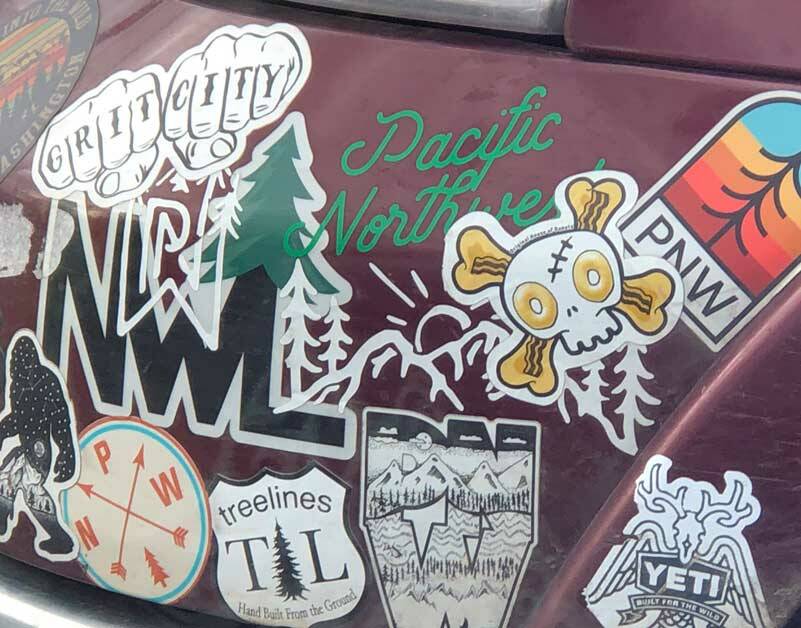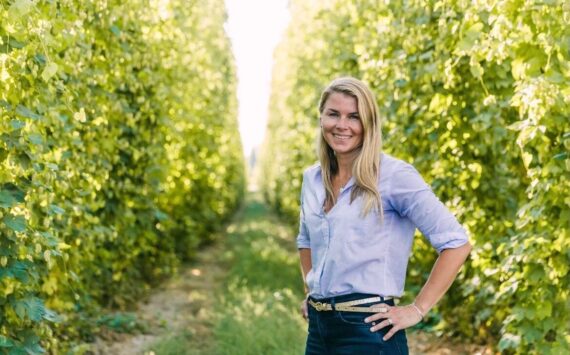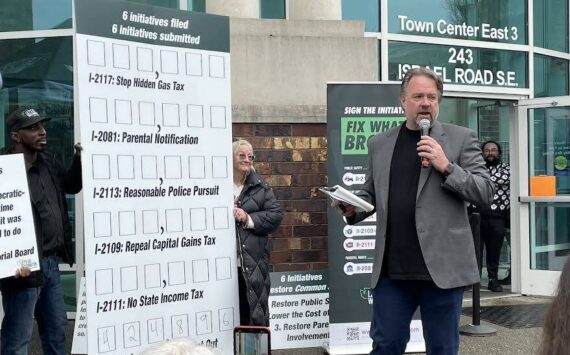By Morf Morford
Tacoma Daily Index
The prospect of a new year always brings up at least the possibility of new beginnings.
Most of these ideals flounder on the rough shores of the first couple weeks of January.
Those fantasies of gym memberships are the manifestation of impulse-purchase based delusions of new-found discipline, focus and a love for fitness.
Leave it better than you found it
“Leave it better than you found it” is the core principle of scouting organizations, most families and even many citizens and civic groups.
Whether it is a sidewalk, workplace or a classroom, our job, wherever we find ourselves, at any skill level or age, it is the first principle of a decent person to live by this simple rule.
We are here now
To put it at its most basic principle, we are the ones who are here, as parents, as workers or as neighbors, and this is our community and our time is now.
We have very limited time to make a difference, and, perhaps like no other time, our neighborhoods, our communities and our time have needs that may seem overwhelming – and they have gotten to such a state because too many of us have lost track of this most basic principle.
There is nothing new about this principle, it is woven into every religion, every relationship and certainly, every business or political philosophy.
Do not be daunted by the enormity of the world’s grief. Do justly, now. Love mercy, now. Walk humbly now. You are not obligated to complete the work, but neither are you free to abandon it. ~ The Talmud
Wherever we live and work, or even find ourselves for a short time, opportunity is always before us.
Live, Laugh, Love
One of the obstacles to change is that most resolutions tend to be behavioral – start doing this, stop doing that, cut this out of your diet or add that, exercise more, sit less, read more, cut back the screen time, spend more time doing what you love.
You could buy more motivational posters – the “Live, Laugh, Love” reminders, or de-clutter your house and get rid of last year’s versions.
The appeal of the new year
Whatever the level or category, individual, dietary, financial or relational, the impulse to improve our lives seems both ingrained and universal.
New Year’s seems to be the one time of the year when we find ourselves re-evaluating and maybe even reorienting our course in life.
There’s nothing sacred about New Year’s – you could make decisions about money or health any time.
The attraction to New Year’s resolutions is that lots of other people are doing them as well.
And a lot of our resolutions are larger than individuals – and many are long term.
Some community resolutions
In spite of our current political/philosophical divisions, it certainly looks like we have several areas of public and shared concern that we, as a community, should resolve to at least address in some way.
Decisions and resolutions at any level should keep in mind what the end result might be.
What, we might ask, what would an answer to any problem actually look like?
What are we, by any decision, opening or closing the way to?
What are we “optimizing” for?
One community goal, I think we all, of every political background or belief system would agree on is to get homeless people (and their makeshift shelters and refuse) off our public walkways and out of our parks.
“Sweeps” have been notoriously ineffective.
I’m guessing that they must look good on some official reports but they certainly don’t contribute anything to a solution – short or long term.
At best, they might move the “problem” to another area – maybe even another jurisdiction.
But in “sweeps”, like everything else, what is it that we are “optimizing” for?
If someone has been evicted, is escaping domestic abuse or has overwhelming medical expenses that have led to eviction, does confiscating or hauling away all of their earthly possessions help them? Or us?
What is accomplished?
Or even, what was intended to be accomplished?
Any social problem, from addiction to homelessness to a hundred others, cannot be erased or ignored.
Ten or twenty years ago you could drive around Pierce County and see bedraggled, long neglected homes or trailer courts all over the county, from urban to rural areas.
We had residential (aka affordable) hotels, especially downtown (even in downtown Seattle, especially Pioneer Square).
They are (mostly) all gone now.
Either rehabbed or demolished and replaced with high end housing.
But where did the people go?
Where could they go?
They certainly could not afford the upscale “improvements” to the properties where they once lived.
Those places may have been substandard (by any definition) and ugly, and leaky and infested, but they were home.
They were approaching, if not quite by our standards, shelter.
When I was a kid, my mother had a side job managing a cluster of small rental homes across the street from our house.
They were cheap and not very appealing. They were adequate.
The tenants were mostly enlisted military and their families.
And those renters often had a sense of community, or at least a shared situation.
The houses were tiny and cramped, so the children were outside a lot.
I saw them or even joined with them many times.
There was a sense of common ground, however transitory.
Planning for housing needs now and in the future
I heard a professional consultant recently say that any “development” should have two priorities; the community and the environment.
In other words, how can whatever is being proposed improve the neighborhood both for those who live there now and will in the future?
It’s a simple formula; every decision, every investment should be in the service of those two key principles of making the neighborhood better.
I think it’s fair to say that everyone wants Tacoma, if not every urban center, cleaner and safer.
Some of us even want our communities to be welcoming and appealing.
I don’t believe any of us wants squalor, disgust and fear, yet somehow that is where our previous policies and decisions have taken us.
In Tacoma, as in many cities, we want to encourage green space of all kinds.
Trees add value – among many other things.
Community is literally who we are – our identity, our sense of belonging and safety.
To put it mildly, our sense of community trust and well-being has been tested lately.
One resolution to rule them all
No matter where we find ourselves, no matter what we believe or care about, could we share this one “resolution” – no matter what our background, or beliefs, could we all resolve to make our community better?





